PRESS & NEWS
Quick Question April 2023 Results: Do You Participate in an FTD Support Group?
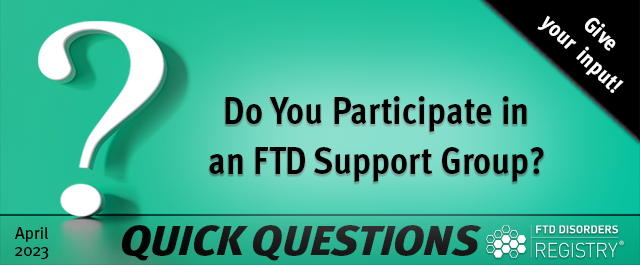
Of the 809 people who responded to our April 2023 Quick Question, 65% do not participate in an FTD Support Group.
Of the 809 people who responded to our April 2023 Quick Question, 65% do not participate in an FTD Support Group. Nearly a quarter of these people (194) identified as biological family members of someone diagnosed with FTD.
Last month the FTD Disorders Registry asked: Do You Participate in an FTD Support Group?
Our poll showed that spouses of people diagnosed with frontotemporal degeneration (FTD) were most likely to participate in an FTD Support Group.
However, some people who are not in support groups said that they meet with a therapist or other person one-on-one. One person noted that they use email for their support.
Most people (702) answering this month’s question were from 47 U.S. states, plus the District of Columbia, and Puerto Rico. At number one, Texas had 50 respondents, followed by New York with 49. Pennsylvania (40), Florida (39), and Minnesota (31) round out the top five states.
There were 39 people from 6 Canadian provinces and territories who replied. Australia, Brazil, Italy, and Spain complete the top five countries with the highest number of respondents.
RESULTS
No, I do not participate in an FTD support group because:
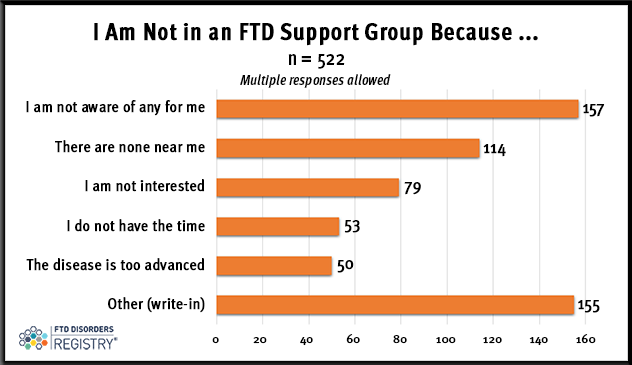
There were many reasons people cited for why they do not participate in a support group. Most write-in responses fell into one of these topics:
Yes, I am in an FTD support group
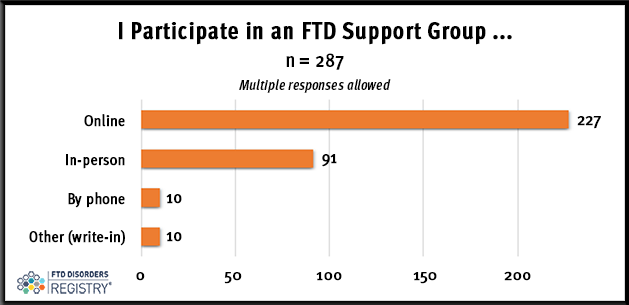
The majority of people currently participating in an FTD support group do so online with in-person meetings second. Some people are in more than one group and meet in multiple ways.
Several respondents indicated that they switched from an in-person support group to an online group during the COVID pandemic and have continued online. Online communities were identified as Facebook Groups, Zoom gatherings, Google Meet, and other video tools.
Support Group Participation by Relationship to FTD-Diagnosed Person
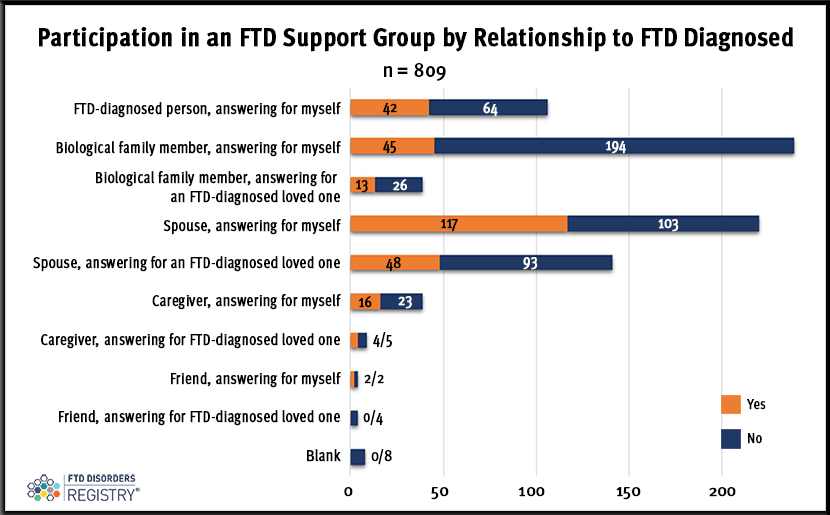
Biological family members provided the highest number of answers with 239 closely followed by spouses with 220.
There were 608 who answered for themselves and 193 who answered on behalf of their FTD-diagnosed loved one. Eight people did not indicate their relationship to a person diagnosed with FTD.
GENDER
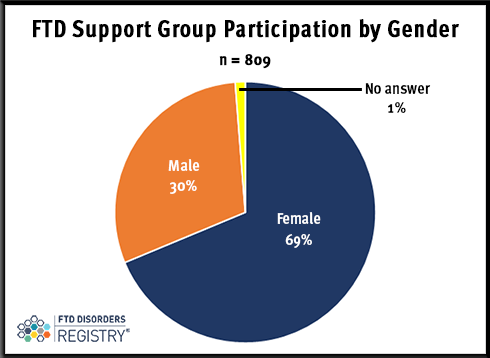
More than two-thirds of those who answered the question identified as female (556), and almost one-third indicated that they were male (243). Ten people (1%) did not answer this question.
You can read questions and responses from previous polls on the Quick Questions summary page.
Together we can find a cure for ftd
The FTD Disorders Registry is a powerful tool in the movement to create therapies and find a cure. Together we can help change the course of the disease and put an end to FTD.
Your privacy is important! We promise to protect it. We will not share your contact information.



